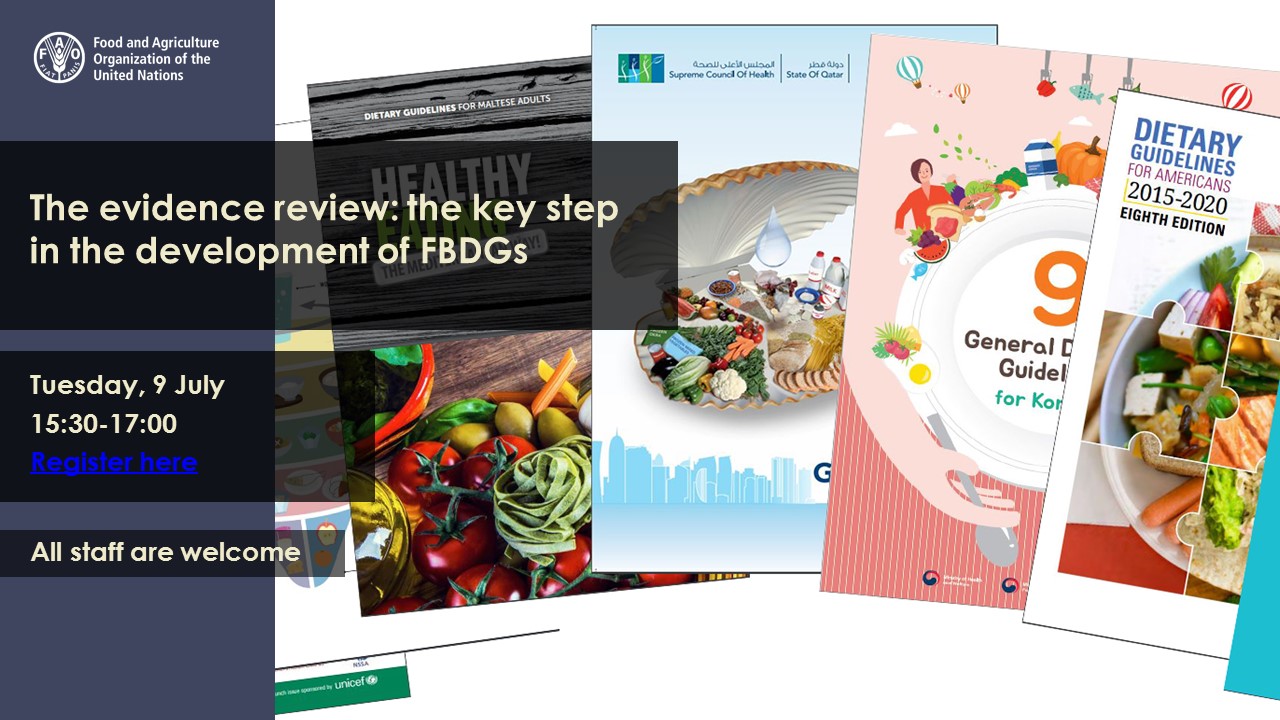Education
FAO Webinar - The evidence review: the key step in the development of FBDGs

09 July 2019
15:30 – 17:00 (GMT+2)
A solid evidence base is a pre-requisite for food-based dietary guidelines (FBDGs) to be able to address country-specific nutrition needs while being socially, culturally and economically appropriate. With the increasing burden of overweight and obesity and other modern sustainable development challenges, the evidence base must thus reflect these evolving considerations. In addition, amidst increasing pressures from commercial interests and civil society/academia’s questioning of the integrity of dietary advice, maintaining transparency and high standards in the evidence review of FBDGs has become a critical issue.
However, with the exception of some countries, not much is known about the actual methods used and activities carried out during the FBDGs evidence review process.
This FAO webinar will tackle some of these gaps focusing on the following questions:
- Why is the evidence review a key step in the development of FBDGs?
- What are the main processes involved? What is the current FAO process for conducting an evidence review?
- What are some challenges and responses in low-income and middle-income countries (LMICs)?
The webinar will also highlight two country cases and present FAO’s current work in this field.
Presenters:
Ana Islas and Ramani Wijesinha-Bettoni, Nutrition Officers, FAO
Joyce Kinabo, Professor, Sokoine University of Agriculture, Tanzania
Gabriela Rosero Mora, Coordinator of the FBDGs process, Ecuador
This is the second of a series of six webinars on FBDGs organized by the Nutrition Education and Consumer Awareness Team of FAO






